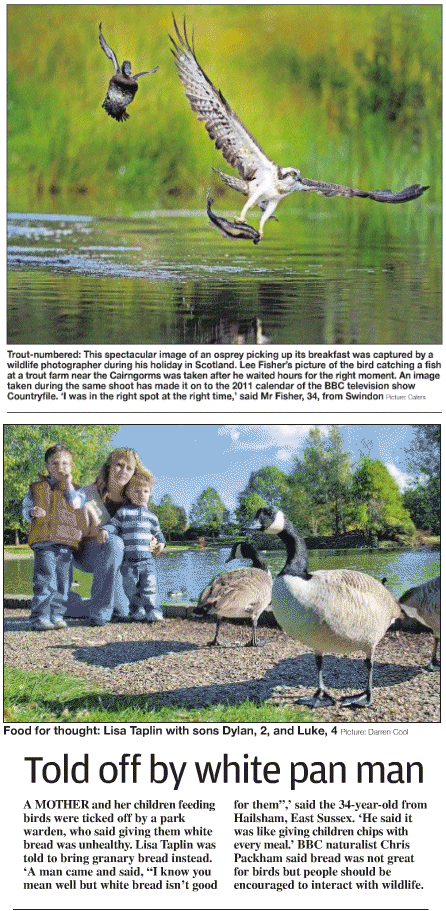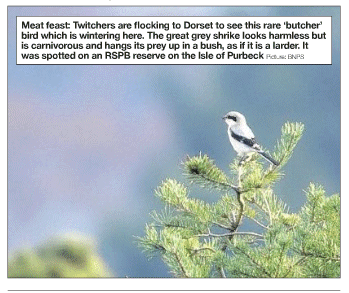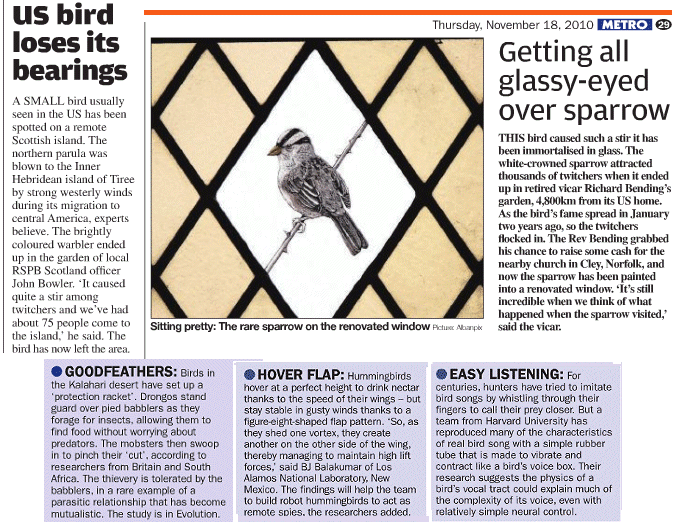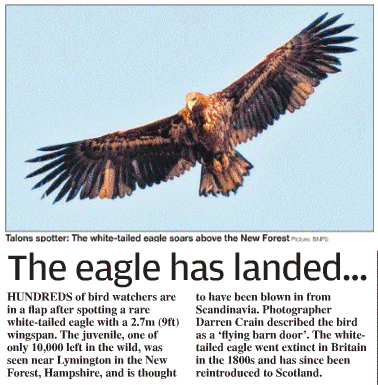Why this picture's a window on past
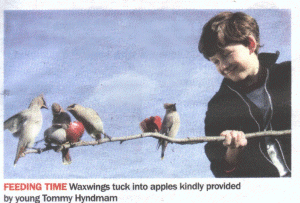
WAXWINGS have made the national news, and the Viking
visitors have been seen everywhere in the region, from supermarket car parks
to Oldham town centre, and from flocks of 40 in Cheshire, to a small party
of six at Torside picnic site in Longdendale.
It's a waxwing-fest and you haye all heen enjoying the feast. The photograph
seen here, is so much more than a great shot ,waxwings feeding on apples
a stick, held by a young boy - it is a metaphor of lost innocence, days gone
by and the simple, but utter beauty of the wildlife around us.
Of innocence; because the birds had flown south from the high Arctic, before
touching land, perhaps never having seen a man before. No fear, and perhaps
also, as my mum says, "Hunger is a good sauce." (Poor crop of berries in
the far north of Scandinavia)
Of days gone by; because many of our native birds would have been as bold
in the past; before we began to exterminate them in one way or another.
And of beauty; surely that's obvious?
While we admire our winter visitors, who do not normally need our help, and
with a cold snap upon us, it is a timely reminder that our resident birds
need our help.
Food like meal worms, fat-balls, crushed peanuts, dried fruit, seeds and
grain to compensate for birds' natural food which is covered in snow and
ice and impossible to get to.
Leftovers like grated cheese, porridge oats, soft fruit, unsalted bacon,
cooked rice, pasta and the insides of cooked potatoes are also a good source
of energy for garden birds, and water for both drinking and bathing is vital.
The RSPB is asking people to follow a wild bird winter survival plan
during the harshest weather.
-
Put out feed regularly, especially in severe weather. Set up a
bird table and use high calorie seed mixes. This can also
be used to put out kitchen scraps of the sort mentioned earlier.
-
Put out hanging feeders for black sunflower seeds, sunflower hearts, sunflower-
rich mixes or unsalted peanuts.
-
Ensure a supply of fresh water every day. If it is very cold use tepid water
but DO NOT use any antifreeze products.
-
Put out fruit, such as apples and pears, for blackbirds, song thrushes and
other members of the thrush family.
-
Food bars or fat hung up or nibbed into the bark of trees is a great help
for treecreepers, goldcrests and other species.
-
Put up nest boxes to provide roost sites for the smaller birds. They will
then be used for breeding later in the year.
Judging by your e-mails, many readers have made the Journey to see the RSPB's
latest reserve at Dove Stones, Saddleworth.
Indeed some of your photographs have appeared here, meniorably Mike Price's
shots of the resident peregrine chicks.
On Saturday December 4, Dove Stone takes its place among UK-wide events to
celebrate tree dressing day, by dressing trees with climbing plants and natural
bird feeders.
Rachel Downham, Dove Stone's information assistant, said: "By planting climbers
such as honeysuckle, clematis and ivy; we're providing future food and homes
for many insects and birds. What better way to dress our trees in celebration
of the wildlife they support.
Visitors will also be able to make bird feeders out of natural materials:
Dove Stone's trees are currently playing host to large groups of fieldfares,
some of which will have travelled from as far as Scandinavia and will be
feeding here before commencing the next part of their journey to their winter
grounds. If you're really lucky; there maybe some waxwings about. - Sean
Wood sean.wood@talk21.com |
